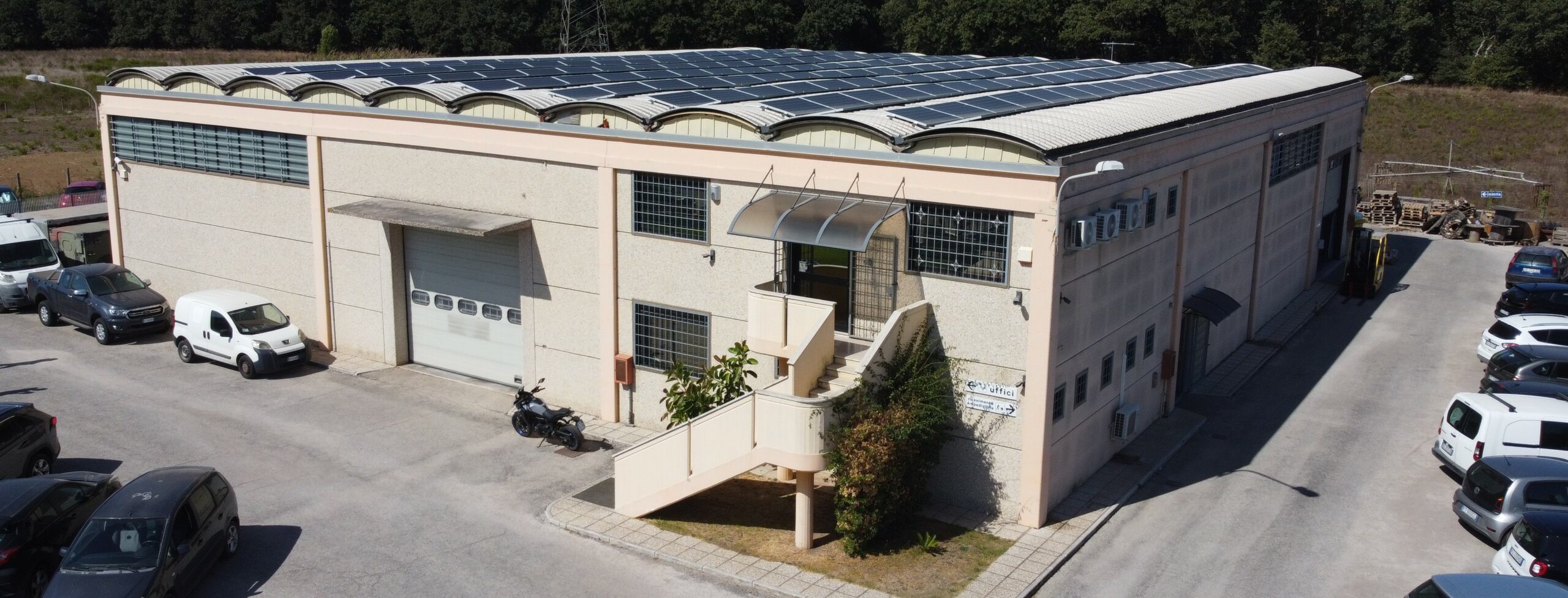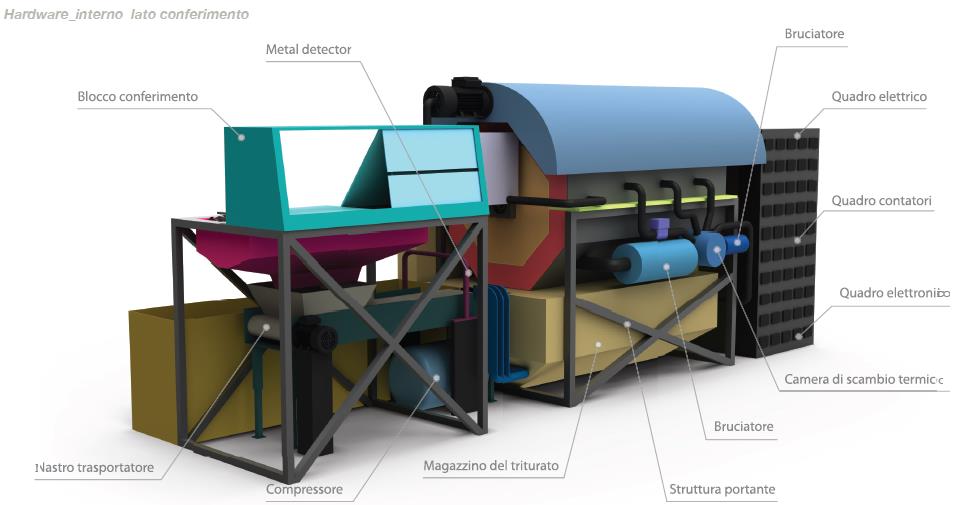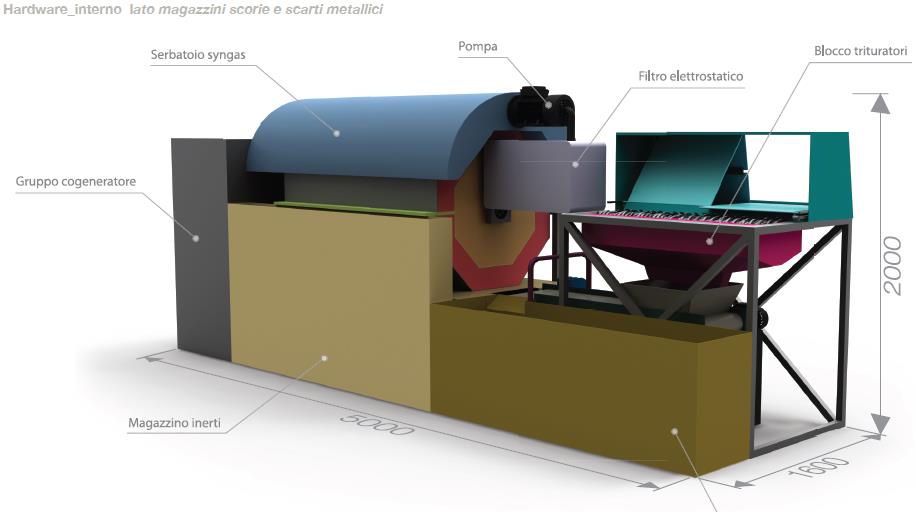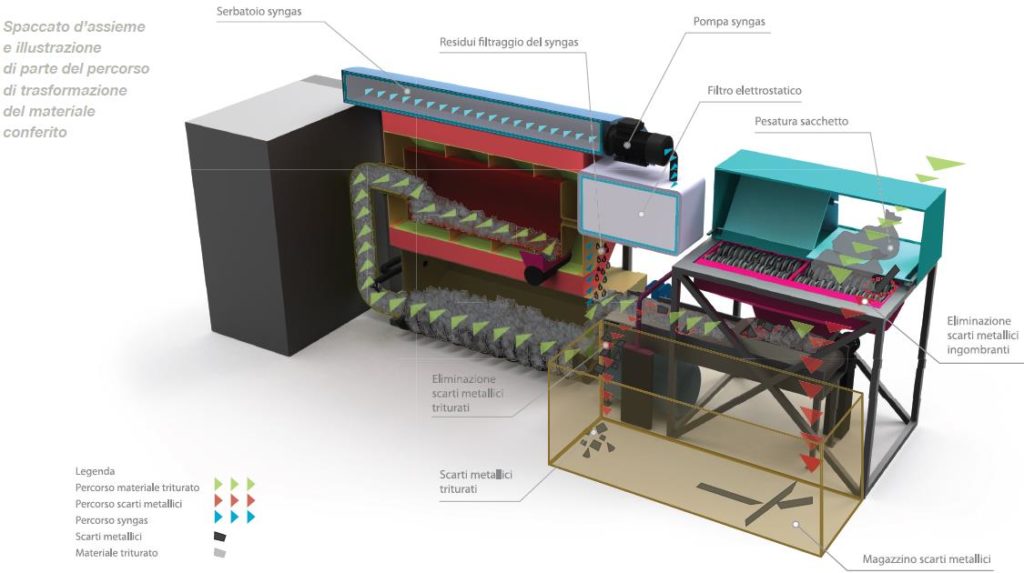The waste disposal, as well as the production of electrical power, are two critical issues in tactical environments.
Our project represents a solution for both aspects, and is conceived for use inside a military base or campor ship. Our research project develops a sheltered tactical system that performs a molecular transformation of waste by pyrolysis. This process produces a gas (similar to methane) that powers up a power unit, based on an endothermic motor, in order to generate electrical power.
It allows to dispose the waste right where it is produced, and the electrical power generated can be used straight by the owners of the plant. Moreover, the system is not harmful to the environment.
Pyrolysis is a well known chemical process that occurs in the 500÷650°C temperature range and in the absence of oxygen (no combustion), and produces syngas.




